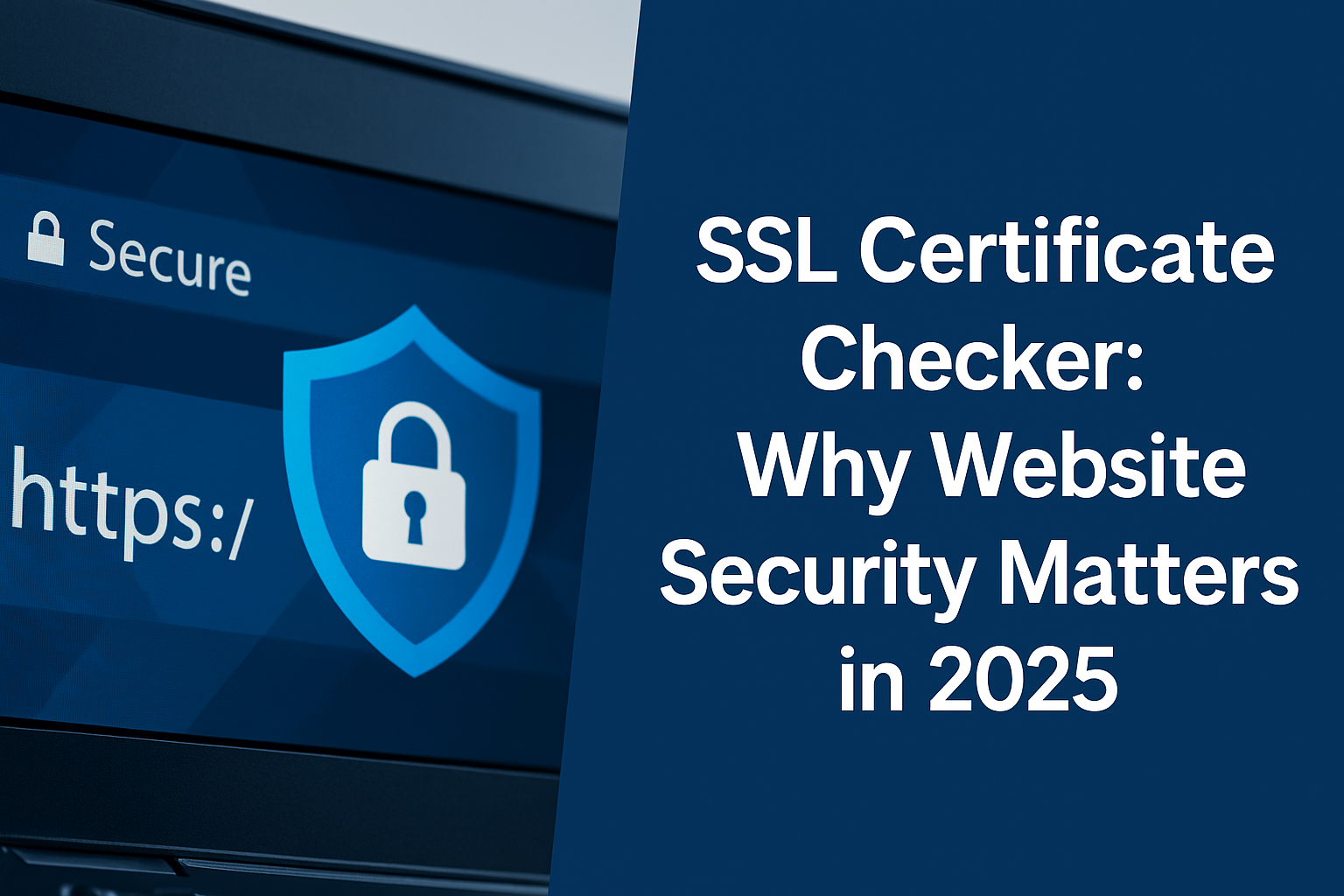
25
SSL Certificate Checker: Why Website Security Matters in 2025
Check your SSL certificate with the Recipeace SSL Checker. Learn why SSL is essential for website security, SEO, and trust in 2025, and how to avoid common SSL issues.
Introduction: The Lock Icon That Builds Trust
When you visit a website in 2025, one of the first things you notice in your browser is the padlock icon. That small symbol means the site is protected by an SSL certificate — a key part of modern website security.
Without SSL, your site risks losing Google rankings, scaring away visitors, and even exposing sensitive data.
This guide explains what SSL certificates are, why they matter for SEO and trust, and how to use the Recipeace SSL Checker to verify your site’s security.
What Is an SSL Certificate?
- SSL (Secure Sockets Layer) encrypts communication between a user’s browser and a website.
- Now replaced by TLS (Transport Layer Security), but still commonly called SSL.
- It ensures sensitive data like passwords, credit card numbers, and emails are safe from hackers.
Why Is SSL Important in 2025?
- Data Protection – Encrypts personal and payment info.
- User Trust – Visitors see the padlock and feel safe.
- Google SEO Boost – Since 2014, HTTPS is a ranking signal.
- Compliance – Required for GDPR, PCI DSS, and privacy laws.
- Browser Warnings – Sites without SSL show “Not Secure” alerts.
Types of SSL Certificates
- DV (Domain Validated): Basic, fastest to issue.
- OV (Organization Validated): Verifies business identity.
- EV (Extended Validation): Shows company name in browser bar.
- Wildcard SSL: Secures main domain + subdomains.
- Multi-Domain SSL: Protects multiple websites at once.
How to Check an SSL Certificate
Use the free Recipeace SSL Checker:
- Enter your website URL.
- Instantly check SSL validity, expiration date, and issuer.
- Get alerts for weak or outdated certificates.
What Information Does SSL Checker Provide?
- Certificate type & validity
- Issuing Certificate Authority (CA)
- Expiry date & renewal status
- Encryption strength
- Domain & subdomain coverage
Common SSL Issues to Avoid
- Expired Certificates: Can trigger security warnings.
- Mixed Content: HTTPS pages loading insecure (HTTP) assets.
- Self-Signed Certificates: Not trusted by browsers.
- Weak Encryption: Outdated SSL versions vulnerable to attacks.
SSL and SEO: The Hidden Advantage
- HTTPS is part of Google’s ranking algorithm.
- Sites with SSL load faster (HTTP/2 support).
- Visitors are more likely to stay and convert.
How to Fix SSL Problems
- Renew on Time: Set reminders before expiry.
- Force HTTPS: Redirect all HTTP pages to HTTPS.
- Update Mixed Content: Replace insecure links.
- Use Trusted Authorities: Let’s Encrypt, DigiCert, GlobalSign.
Case Study: SSL and Conversion Rates
- An eCommerce store switched to HTTPS with EV SSL.
- Result: 18% increase in conversions as users felt safer.
- Bonus: Higher SEO rankings after migration.
Future of SSL in 2025 and Beyond
- Automated SSL Renewal: Common via hosting providers.
- Free SSL (Let’s Encrypt): Now industry standard.
- Post-Quantum Encryption: New algorithms to resist quantum computing attacks.
Conclusion: Secure Your Website Today
SSL isn’t optional anymore — it’s a must for security, SEO, and trust.
Use the Recipeace SSL Checker to:
Verify certificate validity
Fix issues before they hurt rankings
Build trust with visitors
Contact
Missing something?
Feel free to request missing tools or give some feedback using our contact form.
Contact Us